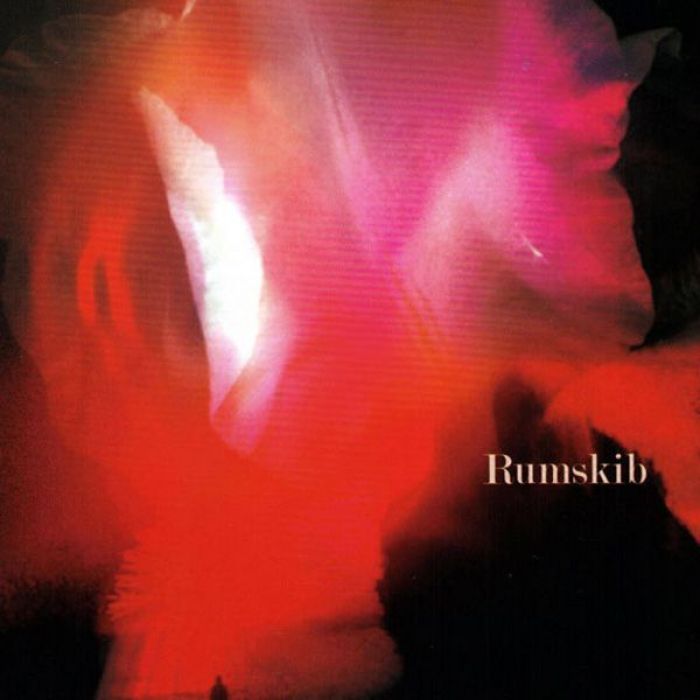Rumskib by Rumskib (Review)

I feel rather bad for the other CDs that have been piling up on my desk over the past week or so, because Rumskib’s self-titled debut has been taking up way more than its fair share of time in the CD player. But it’s not really my fault, I swear.
The Danish duo of Keith Canisius Baerken (vocals and instruments) and Tine Louise Kortermand (vocals) is thoroughly rooted within the shoegaze tradition, and so their debut is absolutely full of the sorts of glorious sounds for which I have an acute weakness. And so, when confronted by such songs as “Springtime” and “Dreampoppers (Tribute),” which are some of the finest slices of shoegaze pop I’ve heard in a long time, what else am I supposed to do but give it my full attention?
Listening to Rumskib’s twelve tracks, you’d think that the only albums the duo had access to while growing up were My Bloody Valentine’s Loveless and the earliest moments of the Cocteau Twins’ discography (Garlands, Treasure, etc.). A combination which, when mixed with the producer Jonas Munk’s (Manual) trademark electronic beats and atmospherics, makes for quite a beguiling mixture indeed.
The album begins with the three-song salvo of “Hearts On Fire,” “Springtime,” and “Dreampoppers (Tribute),” all of which plunge headlong into the shimmering-yet-shredding guitar sounds one normally associates with Kevin Shields at the height of his powers — and Baerken and Kortermand take the plunge with such glee and delight that you can’t help but want to follow them into the maelstrom.
Baerken’s guitars swirl and churn, expand and fold back on themselves, all to the point where it’s pointless to even try and count the number of layers. All of the sounds blur together into a beautiful sludge one moment, then explode in some sort of crystalline supernova the next.
Meanwhile, Kortermand’s voice coos and floats by, as effortless and intangible as a cloud. She’s like a little girl lost, all big-eyed and demure as her lyrics get absolutely pummeled by the cacophony surrounding them. Snippets can occasionally be made out, stray words here and there, but most of the time, it’s sheer, otherworldly glossolalia.
Of course, if this was merely an exercise is how well the duo can synthesize their influences, there wouldn’t be much point to the whole thing. And there are moments when the duo’s obvious love for their sources causes some songs to get away from them (“Sneak”) or simply shrink away to lovely audio wallpaper (“You’re My Japan,” “Love at first sight”). But the album’s finest moments are truly affecting.
“Dreampoppers (Tribute)” calms down a bit so that Kortermand can coo about love and angels amidst twittering electronics and coruscating guitars. But as the song picks up, it slowly becomes a typhoon where the distinctions between ethereal guitars and ethereal voices become rather meaningless — and there’s such wide-eyed wonder about the whole thing, it creates a catch in one’s throat.
And for those yearning for the glory days of Love Spirals Downwards, be sure to check out “This Crucial Love Game,” which is composed of nothing by lo-fi guitar swells and more of those breathy vocals. Baerken seems determined to make his guitars sound less like a wall and more like a tsunami, and so sends them cresting and soaring over the rest of the song in a manner that might even shame Robin Guthrie. And of course, I can’t understand a single, ecstatic word sung by Kortermand, but I do know I want to join in somehow.
Much of shoegazer music has this air of being lofty and distant, with the human aspect so completely buried under layers upon layers of noise that it’s reduced to just another instrument. It’s impressive to listen to, but sometimes difficult to connect to emotionally. Rumskib creates the same impressive sounds, but there’s also a sense of joy and excitement that is constantly bubbling up from just below the surface of the album. The end result is shoegazer pop that proves to be far more affecting and infectious than one might initially think.